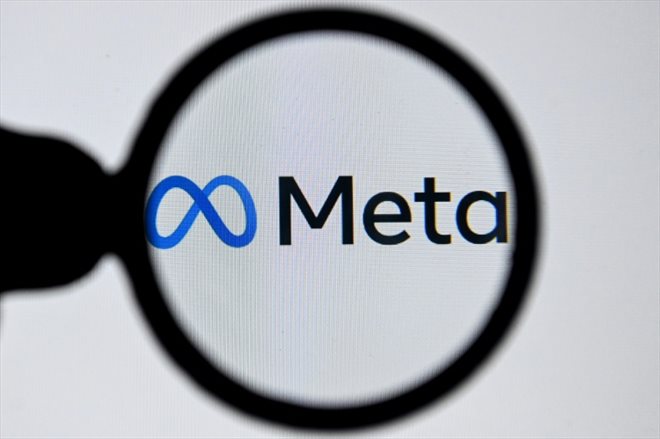Russia on Friday sentenced Google and Meta to record fines of 87 million and 23 million euros for failing to remove “banned” content (AFP / Archives / Kirill KUDRYAVTSEV)
Russia on Friday sentenced Google and Meta to record fines of 87 million and 23 million euros for not removing “banned” content, a sign of growing pressure in the country against the digital giants.
In recent years, the Russian authorities have continued to tighten their control over the internet, the last space where critical voices of the Kremlin can still speak with relative freedom.
They regularly sanction large digital companies, especially foreign ones, accused of not erasing content deemed dangerous for minors or linked to the opposition.
However, the fines of 7.2 billion rubles (87 million euros at the current rate) and 1.9 billion rubles (23.8 million euros) which Google and Meta (Facebook’s parent company) received respectively are unpublished by their amounts.
The Moscow court press service said the Californian giants had been found guilty of “recidivism”. They were therefore sentenced, for the first time, to a fine calculated on the basis of their income in Russia.
In a statement, Russian telecoms gendarme Roskomnadzor said that, in this scenario, the prohibited content either fueled “religious hatred”, contained “unreliable” or dangerous information for minors, or promoted “terrorist or extremist organizations”.
According to Roskomnadzor, the social networks Facebook and Instagram (owned by Meta) still have more than 2,000 prohibited content in Russia. For Google, this figure reaches more than 2,600.
“We will study the court documents and then decide on the measures to be adopted,” Google’s press service told AFP in the middle of the day.
– Fines, threats, blockings –
In addition to pressure for fines, authorities threatened to arrest Apple and Google employees in Russia if they did not cooperate, according to sources inside the groups.
In September, just before the general elections, Moscow succeeded in this way in forcing these two companies, accused of “electoral interference”, to withdraw from their virtual stores in Russia the application of the imprisoned opponent Alexeï Navalny.

Russia on Friday sentenced Google and Meta to record fines of 87 million and 23 million euros for failing to remove “banned” content (AFP / Kirill KUDRYAVTSEV)
To succeed, the Russian authorities can also slow down or block services. Several sites of Mr. Navalny, whose organizations have been recognized as “extremist” by the Russian courts, have been permanently blocked.
In September, Russia also blocked six widely used virtual private networks (VPNs) that allow access to banned websites.
Leonid Volkov, ally of Mr. Navalny, believes that Google will soon be faced with a difficult choice: not to pay the fine and leave the Russian market, or delete all its “illegal” content, in particular the much viewed videos of Alexey Navalny on Youtube (owned by Google).
“The market is quite large, Google does not want to lose it, but a fine of this size makes it less attractive,” Volkov wrote on Telegram on Friday.
Since 2014, Russian law has also required web companies to store the data of their Russian users in Russia, legislation that has cost foreign digital companies thousands of euros in fines.
The authorities are also developing a “sovereign internet” system which will eventually make it possible to isolate the Russian Internet by separating it from the major world servers. The Kremlin denies wanting to build a national network under control, as in China, but this is what NGOs and opponents fear.
In January 2021, President Vladimir Poutine ruled that the internet giants were “in de facto competition with states”, denouncing their “attempts to brutally control society”.
Russian power is finally strengthening its grip on the champions of Russian digital technology.
Passed under the control of a subsidiary of the gas giant Gazprom, the Russian tech group VK, parent company of the first Russian social network “VKontakte”, has been managed since mid-December by Vladimir Kirienko, son of a close collaborator of Mr. Putin.
© 2021 AFP
Did you like this article ? Share it with your friends with the buttons below.




